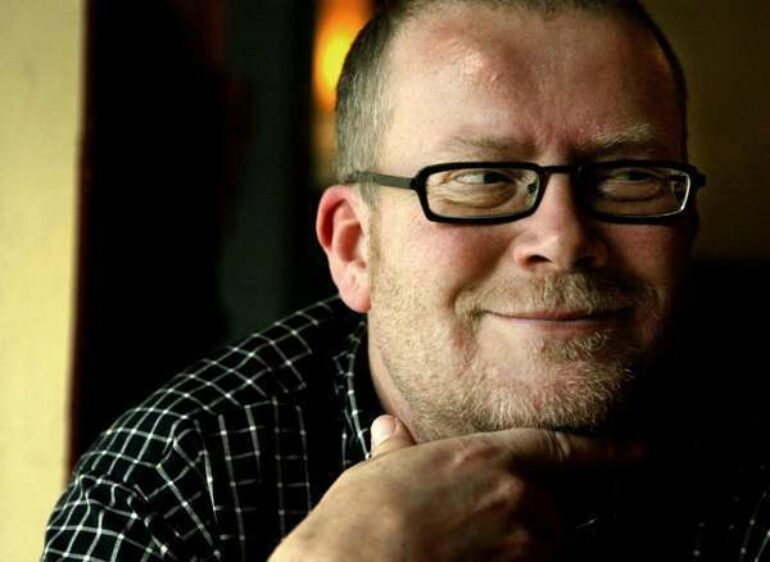WRITTEN BY: Annika Pham
Distribution profile and observations from 30-year veteran.
The distributor is launching today the award-winning film Amateurs. He tells us about his vision for his company as the prime outlet for Swedish arthouse films.
Producer/distributor in Sweden for more than 30 years, through Triangel Film and since 2011 through TriArt, Mattias Nohrborg has witnessed the drastic change in the Swedish arthouse distribution sector. Thanks to a business model built on a curated film programme, with content available both in cinemas and on VOD, TriArt has surfed successfully on the audience shift from theatrical to digital.
Today, the company has a catalogue of more than 700 titles carefully handpicked, a ‘consumer friendly’ transactional VOD platform where audiences can easily find films for rental or buy, and even an online film magazine - PoV.
According to Nohrborg, revenues from digital consumption increases each year by about 150% and a film’s success in cinemas is mirrored on digital. The T-VOD platform triart.se offers not only in-house acquisitions, but also titles from other distributors such as Nordisk Film, Studio S, Scanbox, Folkets Bio, and NonStop Entertainment.
Theatrical still remains essential to launch an arthouse film and create a buzz across all platforms, although BO results are three times lower than when Nohrborg started acquiring films in the early 1990s. "The market has changed drastically and it’s tough to get good figures on foreign language films," says the distributor. “For instance a film like Time of the Gypsies in 1990 achieved 140,000 admissions, but today it would maybe reach 50,000, and the 370,000 admissions of Amelie Montmartre would be surrealistic today, although French films are perhaps the only safe bets among foreign language films,” he acknowledges.
At the same time, the domestic market has changed for local arthouse films, as Swedish adult viewers have developed a taste for edgier innovative local films from newcomers. “Swedish debut films can reach much higher B.O. levels, so what I’ve lost on foreign films, I’ve gained on Swedish arthouse films, says the distributor who cites the good performances of Anna Odell’s Reunion (more than 184,000 admissions) or Gabriela Pichler’s Eat, Sleep Die (100,000). Swedish exhibitors as well are “more supportive of local films and more willing to discuss Swedish films than foreign-language (non-US) fare” according to Nohrborg.
TriArt has therefore upped its intake of local content which represents nowadays, almost 50% of its line up. “Our aim is to be the biggest distributor of Swedish arthouse films and in terms of volume, we are probably the biggest player today,” notes the distributor. His long-time relationships with local producers and directors (such as Ruben Östlund whose first film The Guitar Mongoloid was released by Triangel Film) give him prime access to quality projects, on top of selective films that he produces via B-Reel Films. Current Swedish acquisitions playing on Swedish screens include Östlund’s The Square (190,517 admissions), Linda Hambäck’s animated film Gordon & Paddy (33,186), and Fanny Metelius’ The Heart (3,843).
After today’s release of Gabriela Pichler’s Dragon award-winning film Amateurs, the next Swedish premiere will be Jesper Ganslandt’s Jimmie on April 13. Foreign titles on TriArt’s catalogue include Loveless by Andrej Zvjagintsev (Russia), The Third Murder by Hirokazu kore-eda (Japan), M by Sara Forestier (France), Jupiter’s Moon by Kornel Mundruczo (Hungary) and Racer and the Jailbird by Michael Roskam (France/Belgium).
Upcoming Swedish films in post-production produced by B-Reel Films to be released by TriArt include Anna Odell’s untitled project, with a stellar ensemble cast including Odell, Mikael Persbrandt, Vera Vitali, Shanti Roney, Sofie Gråbøl, Jens Albinus, Thure Lindhart and Trine Dyrholm. Goliath by Peter Grönlund is the second film handled by TriArt after the director’s feature debut Drifters. “The film is set in the same socially-deprived environment as Drifters, “says Nohrborg. “It’s about marginalised people, living in a small forgotten Swedish town, trying to survive. It’s also about a father and son relationship. The film has a unique tone; it’s powerful and a beautiful social realistic drama, played by non-professional actors." Wild Bunch picked it up at script stage for international sales and will start selling it in Cannes.
Looking ahead, Nohrborg says the biggest challenge remains how to reach an audience in today’s over-crowded market where films compete with other content on different platforms. He believes a stronger focus on marketing - with tailor-made campaigns - is quintessential, as well more flexible windows to allow the smaller more difficult films - including documentaries - to reach an audience, wherever they are.
